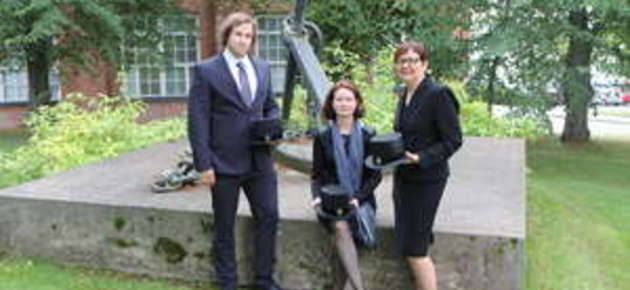Åbo Akademi prize awarded to Pirkko Vartianen, Harri Raisio and Nina Pilke


The Åbo Akademi prize is awarded annually for letters, articles or theses that are published at the University of Vaasa and that promote bilingualism or efficient energy use.
The prize was awarded to Vartiainen, Raisio and Pilke for their article entitled "Deliberative democracy and linguistic operating models after the example set by bilingual citizens' panels established in Ostrobothnia".
The article was published in issue three of Politiikka magazine in 2014 and it was written in collaboration with the University of Vaasa's Department of Social and Health Management and Nordic Languages unit.
– The prize is a superb culmination of our work and incentive for cooperation between different faculties. It also serves as recognition for the flexible and considerate activity that the citizens' panels and other deliberative democracy models have strived for, says Professor Pirkko Vartiainen from the Department of Social and Health Management.
Reinforcing dialogue between citizens and political-administrative bodies
The article by Vartiainen, Raisio and Pilke is part of a more extensive research project that has developed, implemented and analysed deliberative participation models for citizens.
The objective of the models is to reinforce dialogue between citizens and political-administrative bodies and to promote cooperation across language boundaries in our area and in society as a whole.
The article analyses the results of two bilingual citizens' panels. The following questions featured in the analysis: How did participants who spoke different languages feel about the linguistic practices of bilingual citizens' panels? What effect can bilingualism have on the inclusivity, quality of debate and impact of citizens' panels? What is the optimal linguistic operating model for bilingual or multilingual citizens' panels?
– The entire process on which the article's analysis was based emphasised bilingualism and understanding others. I feel that this is exactly what is needed in the modern world, says Professor Vartiainen.